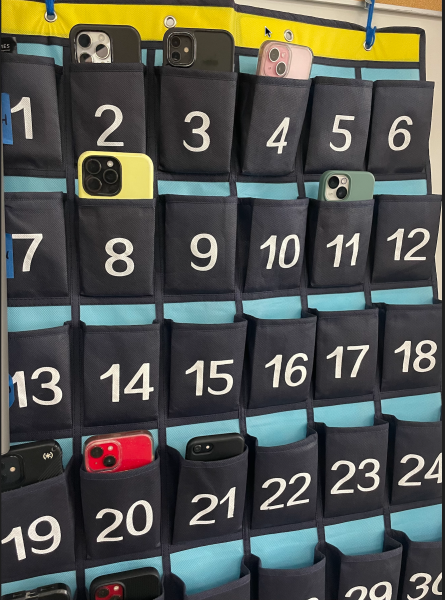Students need to take second language classes
Over 7,100 languages exist today, with English and Mandarin being the most widely spoken of them. Students taking a second language class other than English produces many benefits.
Students, especially children, improve their grammar, vocabulary, and memory by learning another language. Their speaking and listening skills sharpen in school to get ready for future social and working environments.
Language classes and increasing academic performance share a positive correlation. According to Cambridge University Press & Assessment, an academic publishing organization, “In a meta-analysis of 20 studies examining language learning and its impact on academic performance, the majority of studies (90%) showed that language learners perform better across a range of academic subjects than students who don’t study a second language.”
Languages directly impact a person’s brain development and functions. From certain short-term to long-term aspects, a person knowing more than one language refines their multitasking abilities and potentially resists a medical condition affecting tens of millions of people.
The National Library of Medicine, the world’s largest biomedical library, stated, “Bilingualism is one form of cognitive stimulation that requires multiple aspects of brain activity and has been shown to delay the onset of dementia symptoms in patients by approximately 4-5 years as compared with monolingual patients through cognitive reserve.”
An English speaker living in a predominantly English-speaking country may see taking another language as a waste of time. However, language goes hand in hand with many occupations, and knowing more than one language only opens up more opportunities.
“With 1 in 6 US jobs being tied to international trade, the demand for language skills and international expertise in the arts, social services, sciences, business, education, military, law, and government is increasing,” said the University of Minnesota College of Liberal Arts. “Studying a language increases communication skills and intercultural competency—how you are able to work effectively with people of different cultures.”
When other languages seem daunting to learn, it helps to look at language families and branches. English belongs to the Germanic branch along with Norwegian, Swedish, and Dutch, so those languages all share many cognates and similarities. Also, English speakers may turn to Spanish and French because many English words originate from Latin and thus the Romance languages as well.
Elementary-age children tend to pick up languages faster because their brains subconsciously do it if constantly surrounded by that language. Language immersion schools or programs offer education in a foreign language to allow young children to speak and hear it in everyday contexts to gradually enhance their fluency year by year.
Clearly, the more language immersion a person experiences, the better off they are. For those who see themselves as too old to start learning a new language, don’t forget online apps such as Babbel and Duolingo to help get started. Your brain will thank you!








